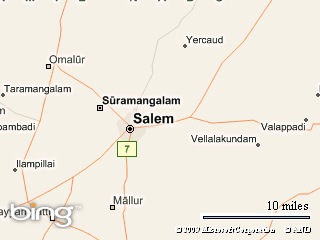We meet at the Hotel Taj Connemara every Friday at 7:30 PM. Ours is a dinner meeting and visiting Rotarians are always welcome.
Wednesday, September 16, 2009
New batch of students at the Chip Ross Learning Centre
The ten girls were present at the function and were excited with the prospect of learning computers. They will be provided Boarding and Lodging at the Andhra Mahila Sabha where the centre is located. The Chief Guest was Satish Jadav of Gaitonde Leathers which has been a donor to our projects.
The Centre's computers are down to 4 in number now. Computers at the Centre are subjected to a lot of stress, being handled by disabled who are not used to soft touch keyboards and computers. We need to now find funds for a few more computers and maybe an internet connection too, how about a printer? Maybe some more peripherals, special chairs for the disabled students, a multimedia kit?
We were shown the living quarters for these girls at the Sabha and there is much that can be done. A coat of paint to start with?
At the end of it all this computer course will give these girls knowledge that will get them jobs and maybe even a life.
One of the girls who was trained here was given a job by one of our member and she is now to be married to a boy working with her.
Monday, September 07, 2009
Artificial Limb Camp at Salem, Tamilnadu, India
PDG Srinivasa Gobalan called to confirm the camp in the second week of November 2009. The RC of Salem Centennial has started making preparations for the camp. They have now been briefed on the camp and I suppose they have all required information to go ahead.
I hope the Valedictory function will be on Friday evening and at Yercaud, a small hill station a few Kms from Salem. It would be a great joint meeting with members of Chennai Kilpauk and Salem Centennial.
The weather in Yercaud would be great and maybe a trek on Saturday morning would get everybody ready for the event in the evening.
I have written to the DG in Nagercoil asking him for his help in organising a camp in that area. I am sure the disabled in that area would greatly benefit.
Now to look for someone in UP and Bihar.
News about Rtn. Peggy Carswell our visitor from Strathcona Sunrise just after Tsunami
| Organic Revolution | ||
Tea growers in Assam rely on a regular regime of pesticides and fertilisers to increase production and reduce crop losses due to insect pests. The Rotarians of RC Digboi, RI District 3240, with unstinting support from a Canadian NGO, "Fertile Ground," raised awareness about the health risks associated with pesticide use. Supported by RI and Canadian volunteers like Ms. Peggy Carswell along with funds raised by Fertile Ground, they started work on "Adarsh Seuj Prakalpa," a community demonstration garden. The garden was created to provide information and encouragement to farmers, tea growers, students and consumers about eco-friendly alternatives to chemical fertilisers and pesticides.
Fertile Ground, established in 2003, carries out activities in Canada and in Assam to promote sustainable and organic farming practices. Situated on two acres of land on one of the main roads in town, the site on which Adarsh Seuj Prakalpa is now situated had previously been living quarters for workers from the local oil refinery owned by Indian Oil Corporation Ltd. Ms. Carswell spent her first six weeks with three labourers and a small but enthusiastic group of local Rotarians and neighbourhood volunteers, creating a mountain of broken bricks, rocks, old shoes, glass and disintegrating plastic bags that had to be removed from the site.
Once the soil could be tilled, a series of raised beds were created. The beds were planted with a mixture of wheat, field peas and channa. The young plants were later incorporated into the soil to increase organic matter and nitrogen. Thereafter five more Canadian volunteers arrived, including Erin Harper, a young organic farmer from Salt Spring Island. Erin explained how to layer straw, cow manure, cardboard, rice husks and water hyacinth (an invasive plant that is rapidly taking over local wetlands) in long piles, 3' wide, 4' high and 16' in length. The materials decompose quickly in Assam's warm climate and by keeping the piles moist and turning them regularly, she soon had a large supply of finished compost to add to the soil.
With members of RC Digboi acting as translators, Fertile Ground's volunteers met with farmers and tea growers from a number of nearby villages. They heard from the farmers that local crops are being attacked by increasing numbers of insect pests since fertiliser and pesticide use has become more widespread and that growers have little or no access to information about sustainable or organic farming practices.
Many farmers in Assam have lost confidence in the traditional practices used to control insect pests and improve soil fertility. Most of the resource materials Fertile Ground has collected and translated into the Assamese language draw on the wisdom of indigenous cultures. They encourage growers to make compost and to use low-cost, locally available materials like garlic, chilli, haldi and leaves of the local neem tree to make preparations that reduce insect damage but don't harm beneficial bugs such as lacewings and praying mantis. Other useful practices that have fallen out of practice include placing perches made from lengths of bamboo in rice fields, or leaving strips of uncultivated land between fields to help attract birds and other insect predators.
Colourful containers to encourage people to separate materials like paper and food scraps from other waste materials was designed by the Canadian volunteer Laura Colquoun. At Adarsh Seuj Prakalpa, these materials are added to the compost piles to produce top quality organic fertilisers. This approach was welcomed by Rotarians of RC Digboi who have recently embarked on an awareness campaign to help improve the town's waste management practices.
A contribution made by the RC Cumberland Centennial, RI District 5020, Canada, helped Fertile Ground begin construction of a classroom and resource centre at the site and funding from a Vancouver-based organisation, Canada India Village Aid, a Canadian NGO, helped furnish the classroom and launch a new training and work experience programme for women in Digboi and nearby villages.
In Digboi, Rotarians have become enthusiastic spokespersons for the project. Some, like Rtn. Urmila Baruah, have started brewing compost tea for use in their own gardens and are making compost. Vegetables grown without chemical pesticides or fertilisers are regularly harvested from the new beds at the site, and are sold at weekly meetings of their Rotary Club. Flower and vegetable seedlings are also grown in a new poly-house erected this year at the site, and the sale of these materials as well as vermicompost provide a small source of income for the project.
The project currently provides full-time employment for three people from Digboi, who participate in training sessions conducted at the site and in nearby villages. A new production unit for preparation of formulas was recently completed, and plans are underway to construct a small "Green Shop" where organic vegetables, vermicompost and other products will be sold.
More information about the project, including helpful information about how to grow crops organically in both English and Assamese languages, is available at www.fertile-ground.org.
MG with RC of London

RCCK is all set to carry out the last bit of formalities which will enable it to receive the Grant funds from The Rotary Foundation.
The entire Matching Grant will be towards provision of artificial limbs to disabled people. The artificial limbs (Jaipur foot) will be provided by Mukti.
This year alone Chennai Kilpauk will provide over1000 limbs to the needy and many in rural, remote areas who do not have access to such facilities.
Once again TRF steps in to help the poor and needy disabled.
Inauguration of Kovalam
Chip Ross Digital Learning Centre
This learning will provide them with the skills that they would require to get for themselves better jobs and more than anything else give them a feeling of great self worth.
Plans are being made to commence training for these girls in the middle of this month.
Kovalam water treatment plant inaugurated
Well attended by District officials and members of RCCK the event was a grand success.
This project will enable over 600 households to get their requirement of drinking water within the village itself. Each household spends over Rs 600 per month on their water requirements and this plant will help them save this money.
RCCK pledged to do more for the people of Kovalam and has already initated a lireacy project in the village.
Tuesday, September 01, 2009
Helping Hands - Salem
Salem Centennial will identify beneficiaries in and around the city of Salem, a radius of about 70 Kms will be covered.
Helping Hands is a Matching Grant project with the Rotary Club of Strathcona Sunrise, Canada with the active involvement of Rtn. Chip Ross.
Kovalam water treatment plant - Inauguration
Chennai Kilpauk is looking at a longterm association with the village through RCC, literacy and other projects which will change the lives of its residents.
This project a joint effort of the RC of Dublin and RC of Chennai Kilpauk with support from The Rotary Foundation will provide safe drinking water to the residents of the Kovalam village. Rtn. Arthur McCullough provides active assistance in this project.
Over a thousand people will immediately benefit by this project and will no more have to buy their water for drinking or cooking.
This is a good example of how Rotary is making this world a better place to live in.















